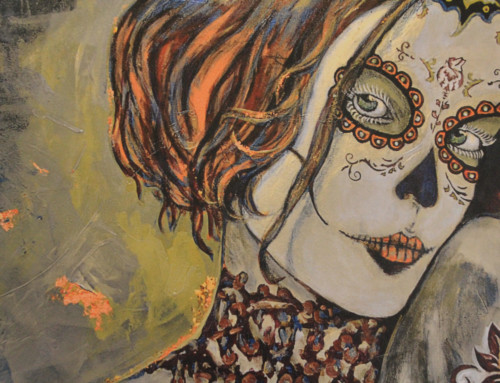The Prisoner of Parkinson: narrowminded
By Giovanni Carlini

In Italy it has been observed and studied a very curious attitude on the part of patients (in this research and sociological theory elevated to the status of prisoners) affected by Parkinson.
This people, living with this disease for a long time and living its disease in a very nervous way, with consequential physical effects, assumes a kind of addiction and complicity, which automatically leads to the victim,
asking all attention and compassion mixed with envy and anger against those not affected. It is a behaviour particularly widespread and worthy of study.
It creates, in this way, one of the most difficult and dramatic moments in the treatment of Parkinson disease: the being narrowminded of the patient in all forms of reaction and its determinated as desired negativity at every change. Studying this research some cases have to be mentioned:
– A lady suffering from Parkinson’s since ten years says: I am feeling good, and I’m followed by an excellent neurologist so I do not need anything new in the cure of my bad because with the use of soft drugs I feel better;
– A twenty years old girl with Parkinson’s disease since she was a child, now she is reacting in every possible ways trying everytime to start a discussion with everybody.
In fact, this person is the key to all sociological theory, because we finally have a patient to elevate to the status of a prisoner who wants to escape from his sentence.
In this case, left to herself, the girl needs instead to be helped through the transition from anger to building her own personality, which could be a solution playing a song.
– We should remind also that woman affected by Parkinson disease who didn’t want to educate her husband to her new needs produced by the disease, because she was ashame. The result was a significant earthquake in the couple and in the family. When I asked her why she did not ask for help she told me she was not able to ask for help.
– Another woman, victim of Parkinson’s since her youth age (now she is grandmother) tried to start the practice of the new sociological Theory, – The Prisoner of Parkinson, has deliberately reduced the impact of drugs despite she was discouraged and told to consult with doctors which, while remaining sheptical, still not know how to comunicate with their patients. The lady wanted and managed to reduce the impact of drugs to increase the ability to hear, understand, deal with, talk and discuss. It should now open here a critical analysis of the pharmacological impact and quality of life.
-A man very disappointed with this disease says he is single, so I can not follow to the new sociological theories on Parkinson – The Prisoner of Parkinson.
The Prisoner of Parkinson that usually is hostile to the news, turns on a light above his being unjustly suffering a serious drama, that requires attention, without engaging to an education on which are his new and true needs. The trap is perfect.
But first, a clarification: a sick man is defined by remaining passive towards Parkinson’s disease, and is elevated to the status of prisoner that patient who fights with determination against evil, to establish himself to the dignity of a human being role.
Sociological theory, applied to Parkinson’s disease, is used to permit the passage from the stage of the patient to the prisoner level. The first strong obstacle, is located exactly in the behavior of the patient, who does not want to react, remaining resigned and angry.
In fact, the nervousness and anger, often mixed to offensive reactions to family and friends, is one of the steps several times recorded in the Italian experience about Parkinson disease.
With the addition of a traditional attitude of oppressive assistance by the medical facility and associations.
Pratically it is a cage that protects the psicological immobility status of people affected by Parkinson.
The Italian situation viewed in this way, from which they emerge when new elements if not so critical, it should be noted, however, an important step of sociological theory to patients with Parkinson’s matured with the patient.
Working later on a piece of poetry about Parkinson disease written by an Italian poet, who suffers from Parkinson’s, but also afflicted by the disease of being in the center of attention, born comparison and conceptualization of “the time of the
common life” and “the time flowing in Parkison “.
Let’s create an example: in the common life you drive your car, answering your cell phone and thinking about different things and all at the same time. The goodness of contemporaneity of these actions carried out all at the same time, frankly there is much to talk about. In fact, people not suffering from Parkinson’s disease, are often stressed and unhappy.
An affected by Parkinson, being affected by a nervous disease, to better manage its various reactions, should reduce the amount of things done in the time unit, giving up the nervous mass necessary to do everything well.
Another example: if an unaffected by Parkinson is allowed the luxury of doing five things per minute (going sometimes under stress) the prisoner from Parkinson (here begins the reaction to the disease) should do one or two actions to the maximum in the same unit of time defined.
In case everybody understand this concept, we should create a community of “physiotherapy” to time management, in field Parkinson, where the unit of measurement of the hours to scan the day is no longer characterized by 24 hours but 30 or 35 if necessary. What I said is obviously an aphorism, to identify the need to establish times and ways to treat Parkinson’s disease in communities specifically organized and self-managed by prisoners from Parkinson.
By Looking for and recreating this different vision of the time (and more near to people affected by parkinson disease), where the prisoner from Parkinson could spend time on vacation, it arises that socialization and humanization of pain, need to care for a disease from which there is no cure, but it is wise not to live in passive forms of prejudice.
The sociological theory of Parkinson continues now in the study of a different mode of using time, hoping for the construction of specific communities where to crop farm, fish, play or just walk hand in hand with its partner, reopening proper communication epidermal torque to educate the new needs of the prisoner from Parkinson.
Obviously sociological theory to Parkinson it not completed by merely rescheduling of the time that is one aspect.
As described in my other works on the Prisoner of Parkinson we want to restart and wake up all the patiens by:
– A personal and intimate reaction to evil, by the former patient now become a prisoner who wants to escape, through the development of specific aspects of his personality;
– Education to be offered to family, friends and partners to the new needs without shame;
– Sharing in real and virtual communities their condition;
– Maturity on the physical and sexual floor, understood in terms of communication instead of lonely consumption and only in order to transmit and receive epidermically a new status of intimacy in the couple to support the tremors and difficulties typical of this disease that requires being nervous new culture emotional and intimate relationship usually forgotten in couples subject to this drama. It is like saying to a disease of the nervous system is offset by a new and more intense emotional reality and tactile.
These are the steps of sociological theory to Parkinson accrued in the field of sociology of the family, delinquency, sexuality and military.







Scrivi un commento